First, as I am a French guy, I want to apologise in advance for my poor English! Despite my searches since few days, I cannot find the correct measure to solve my problem. I think I am close to the solution, but I really need help to achieve this job!
Here is my need: I have a dataset with a date table and a "Position" (i.e. "stock") table, which is my fact table, with date column.
Classic relationship between these 2 tables. Many Dates in "Position" table / 1 date un "Dates" table.
My "Dates" table has a one date per day (Column "AsOf")
My "Deals" table looks like this:
| Id | DealId | AsOfDate | Notional |
|---|---|---|---|
| 10000 | 1 | 9/1/2022 | 2000000 |
| 10001 | 1 | 9/1/2022 | 3000000 |
| 10002 | 1 | 9/1/2022 | 1818147 |
| 10010 | 4 | 5/31/2022 | 2000000 |
| 10011 | 4 | 5/31/2022 | 997500 |
| 10012 | 4 | 5/31/2022 | 1500000 |
| 10013 | 4 | 5/31/2022 | 1127820 |
| 10014 | 5 | 7/27/2022 | 140000 |
| 10015 | 5 | 7/27/2022 | 210000 |
| 10016 | 5 | 7/27/2022 | 500000 |
| 10017 | 5 | 7/27/2022 | 750000 |
| 10018 | 5 | 7/27/2022 | 625000 |
| 10019 | 1 | 8/31/2022 | 2000000 |
| 10020 | 1 | 8/31/2022 | 3000000 |
| 10021 | 1 | 8/31/2022 | 1801257 |
| 10022 | 1 | 8/31/2022 | 96976 |
| 10023 | 1 | 8/31/2022 | 1193365 |
| 10024 | 1 | 8/31/2022 | 67883 |
Based on a selected date (slicer with all dates from "Dates" table), I would like to calculate the sum of Last Notional for each "Deal" (column "DealId"). So, I must identify, for each Deal, the last "Asof Date" before or equal to the selected date and sum all matching rows.
Examples: If selected date is 9/1/2022, I will see all rows, except rows asof date = 8/31/2022 for deal 1 (as the last date for this deal is 9/1/2022). So, I expect to see:
DealId Sum of Notional
1 6 818 147
4 5 625 320
5 2 225 000
Grand Total 14 668 467
If I select 8/31/2022, total for Deal 1 changes (as we now take rows of 8/31 instead of 1/9):
DealId Sum of Notional
1 8 159 481
4 5 625 320
5 2 225 000
Grand Total 16 009 800
If I select 7/29, only deals 4 and 5 are active on this date, so the results should be:
DealId Sum of Notional
4 5 625 320
5 2 225 000
Grand Total 7 850 320
I think I found a solution for the rows, but my total is wrong (only notionals of the selected date are totalized). I also think my measure is incorrect if I try to display the notional amounts aggregated by Rating (other column in my table) instead of deal. Here is my measure:
Last Notional =
VAR SelectedAsOf =
SELECTEDVALUE ( Dates[AsOf] )
VAR LastAsofPerDeal =
CALCULATE (
MAX ( Deals[AsOf Date] ),
FILTER ( ALLEXCEPT ( Deals, Deals[DealId] ), Deals[AsOf Date] <= SelectedAsOf )
)
RETURN
CALCULATE (
SUM ( Deals[Notional] ),
FILTER (
ALLEXCEPT ( Deals, Deals[DealId]),
LastAsofPerDeal = Deals[AsOf Date]
)
)
I hope it is clear for you, and you will be able to find a solution for this.
Thanks in advance. Antoine

